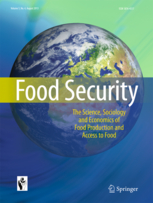
The complex challenge of governing food systems: The case of South African food policy
Author(s): S. B. Kushitor, S. Drimie, R. Davids, C. Delport, C. Hawkes, T. Mabhaudhi, M. Ngidi, R. Slotow, and L. M. PereiraLink to CST author(s): Dr. Sandra Boatemaa, Dr. Laura Pereira
Publication: Food Security
Year: 2022
Full reference: S. B. Kushitor, S. Drimie, R. Davids, C. Delport, C. Hawkes, T. Mabhaudhi, M. Ngidi, R. Slotow, and L. M. Pereira. 2022. The complex challenge of governing food systems: The case of South African food policy. Food Security.
Download publication https://doi.org/10.1007/s12571-022-01258-z
Summary
International experience reveals that food policy development often occurs in silos and offers few tangible mechanisms to address the interlinked, systemic issues underpinning food and nutrition insecurity. This paper investigated what South African government policies cover in terms of different aspects of the food system, who is responsible for them, and how coordinated they are. Policy objectives were categorized into seven policy domains relevant to food systems: agriculture, environment, social protection, health, land, education, economic development, and rural development. Of the ninety-one policies reviewed from 1947–2017, six were identified as being “overarching” with goals across all the domains. About half of the policies focused on agriculture and the environment, reflecting an emphasis on agricultural production. Policies were formulated and implemented in silos. As a result, learning from implementation, and adjusting to improve impact has been limited. Particularly important is that coordination during implementation, across these complex domains, has been partial.
In order to achieve its stated food and nutrition outcomes, including Sustainable Development Goal (SDG) 2, South Africa needs to translate its policies into tangible, practical plans and processes guided by effective coordination and alignment. Key recommendations are practically to align policies to a higher-level “food goal”, establish better coordination mechanisms, consolidate an effective monitoring and evaluation approach to address data gaps and encourage learning for adaptive implementation.
Actively engaging the existing commitments to the SDGs would draw stated international commitments together to meet the constitutional commitment to food rights into an overarching food and nutrition security law.

